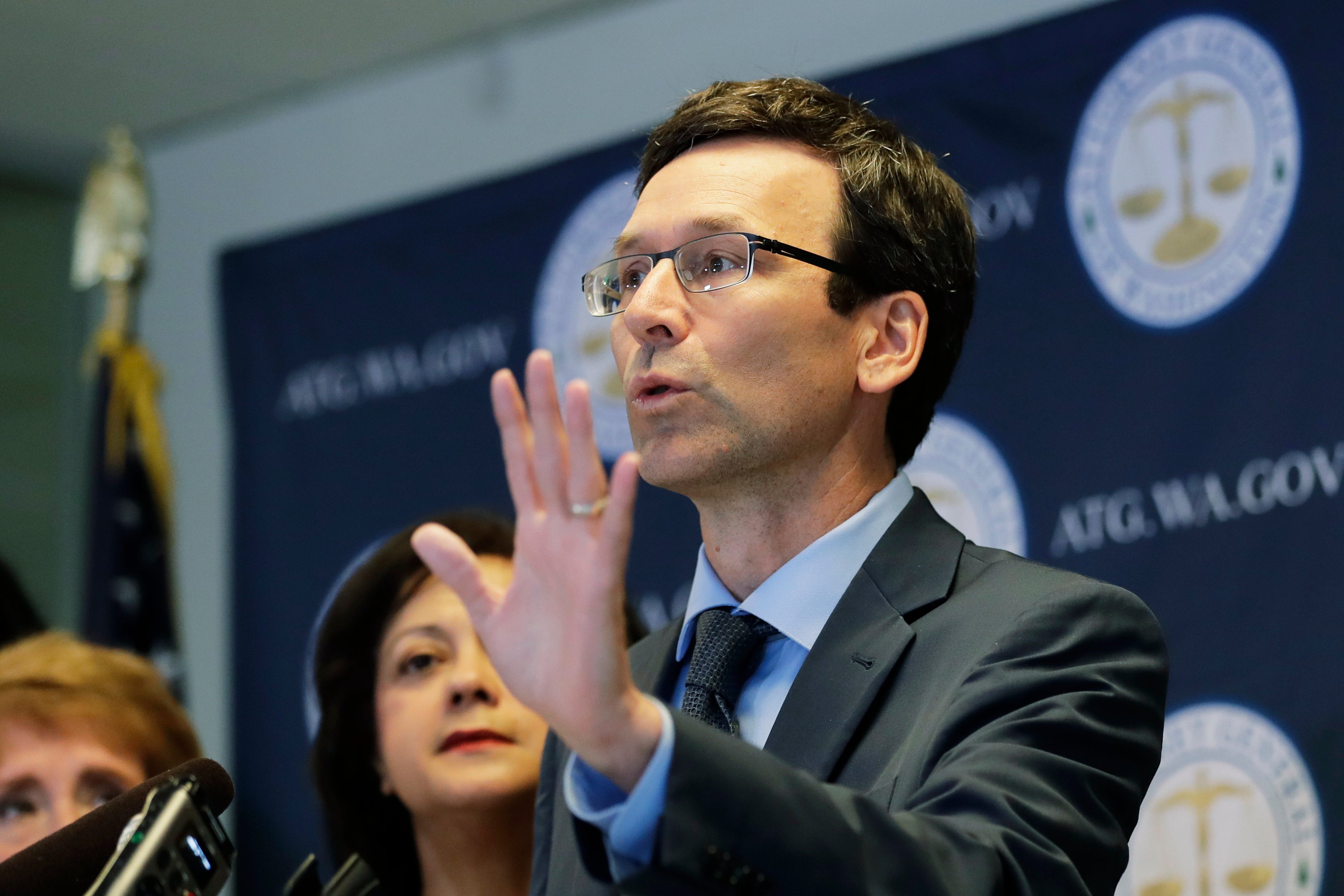Washington justices uphold $18M fine in GMO-labeling case
The Washington Supreme Court has narrowly upheld an $18 million fine levied against an association of large food brands that funneled dark money into a state political campaign

Your support helps us to tell the story
From reproductive rights to climate change to Big Tech, The Independent is on the ground when the story is developing. Whether it's investigating the financials of Elon Musk's pro-Trump PAC or producing our latest documentary, 'The A Word', which shines a light on the American women fighting for reproductive rights, we know how important it is to parse out the facts from the messaging.
At such a critical moment in US history, we need reporters on the ground. Your donation allows us to keep sending journalists to speak to both sides of the story.
The Independent is trusted by Americans across the entire political spectrum. And unlike many other quality news outlets, we choose not to lock Americans out of our reporting and analysis with paywalls. We believe quality journalism should be available to everyone, paid for by those who can afford it.
Your support makes all the difference.The Washington Supreme Court has narrowly upheld an $18 million fine levied against an association of large food brands that funneled dark money into a state political campaign.
The 5-4 decision Thursday found that the penalty against the Grocery Manufacturers Association — now known as the Consumer Brands Association — did not violate the U.S. Constitution's ban on excessive fines.
The group, which included companies like Coca-Cola and Nestle, in 2013 collected $14 million from its members. It then contributed $11 million of that to help defeat a Washington state ballot initiative that would have required labeling of genetically engineered ingredients on food packaging.
The association failed to register as a political committee in the state, did not disclose which companies contributed the campaign money and filed no campaign-finance reports until after Attorney General Bob Ferguson sued.
As part of the lawsuit, the state uncovered evidence that one association executive noted during a meeting that having a pooled campaign account would “shield individual companies from public disclosure and possible criticism.”
“The GMA’s offense struck at the core of open elections,” Chief Justice Steven González wrote for the state supreme court's majority. “The grave nature and broad extent of GMA’s offense suggests the penalty is not grossly disproportional.”
The dissenting justices, led by Justice Sheryl Gordon McCloud, said that the association’s failure to file campaign disclosure reports was serious for a reporting violation but that it was only a reporting violation. She called the $18 million penalty “grossly disproportionate” to that offense.
The justices previously found that the Grocery Manufacturers Association's violations were intentional, but sent the case back to a lower court to determine whether the fine was excessive. The 8th Amendment to the U.S. Constitution prohibits excessive fines.
The GMO-labeling measure, known as Initiative 522, failed by a vote of 51% to 49%.